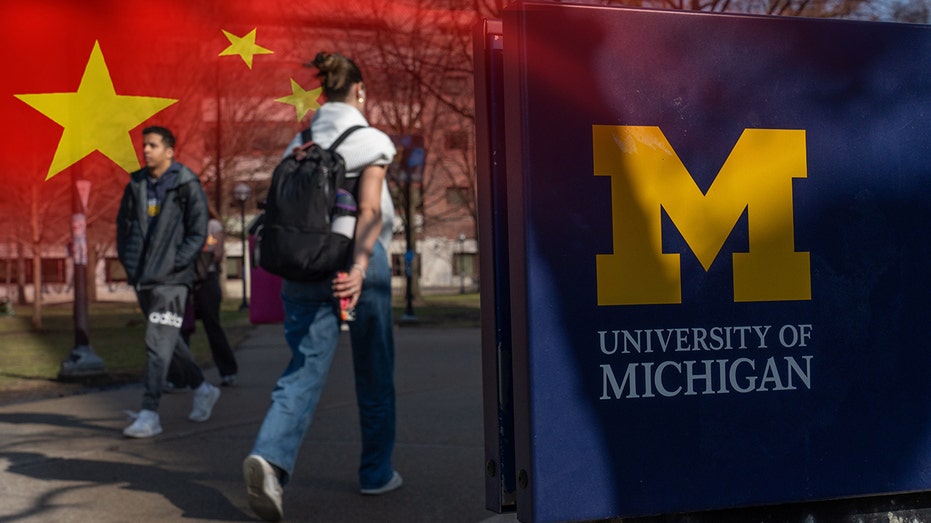Chinese Bioweapon Smuggling Case Highlights U.S. Security Concerns: Expert Claims America 'Hasn’t Learned Anything' from COVID
Former Trump advisor urges tighter vetting of Chinese students amid agroterrorism smuggling charges.

Federal authorities have charged two Chinese nationals, including a University of Michigan research fellow, in an alleged plot to smuggle a dangerous biological pathogen into the United States, raising alarms over national security and the safeguarding of American scientific research. The pathogen in question, Fusarium graminearum fungus, is considered a significant "agroterrorism agent" due to its propensity to cause devastating crop diseases and economic damage worldwide. According to federal prosecutors, the substance was transported through Detroit's airport with the intention of bypassing strict biosecurity controls.
The plot’s exposure has reignited concerns among experts that the United States remains vulnerable to similar threats, particularly when academic and research institutions rely heavily on international collaborations. Christian Whiton, a former senior foreign policy advisor, warned that American universities and companies may be unintentionally aiding rival nations by granting broad access to sensitive research and technology. "In some cases, it seems like we learned nothing from COVID," Whiton said. He questioned ongoing direct travel from China and highlighted what he called the dangerously permissive environment that allows foreign researchers access to critical scientific domains, especially pathogens, within the U.S.
The case underscores broader anxieties about Beijing’s approach to global competition. Experts point out that Chinese infiltration of U.S. research and corporate sectors is not new, with efforts dating back several decades. Whiton argued that China’s recruitment of talent extends not just to its citizens but also to people of Chinese descent abroad. He criticized visa programs, like H1-B, claiming a substantial proportion benefit Chinese nationals who then join high-tech American firms, potentially placing valuable intellectual property at risk.
Traditionally, U.S. political leaders have steered clear of interfering in university affairs, but critics say this hands-off approach has backfired, leaving institutions exposed to foreign influence. "Taxpayers are funding these things and shouldn't be forced to fund activities that are contrary to their interests," Whiton remarked, emphasizing a push among some lawmakers to end taxpayer support for the education of nationals from strategic adversaries.
The Trump administration has outlined a more aggressive stance in response. Secretary of State Marco Rubio recently announced plans to revoke student visas for Chinese nationals linked to the Communist Party or working in critical STEM fields. President Donald Trump has indicated support for continued educational exchange but stressed the necessity for stringent vetting. These policy shifts reflect growing bipartisan consensus that the openness of U.S. higher education must be balanced against national security imperatives.
National security advocates caution that hopes of fostering pro-American sentiment among Chinese students have largely been misplaced. According to Whiton, students often remain within cultural enclaves, acquire advanced technical skills, and return to China where their knowledge can be leveraged by commercial or military entities aligned with the central government. “We really are essentially educating and arming our chief adversary in the world,” Whiton said, echoing calls for tighter scrutiny.
Former congresswoman Michelle Steel argued that U.S. universities have often prioritized financial considerations over national security, welcoming international students as a source of revenue and prestige. She referenced previous high-profile incidents, such as the conviction of Dr. Charles Lieber, former chair of chemistry at Harvard, for failing to disclose affiliations and payments from Chinese state-backed programs.
Steel also raised concerns over large-scale, undisclosed Chinese government investments in American higher education facilities, highlighting a recent case involving UC Berkeley. She stressed the imperative for stricter reporting requirements for foreign funding and called attention to collaborations between elite U.S. universities and Chinese institutions tied to the military.
The unfolding developments signal a sharpening debate over the tradeoff between academic collaboration, economic interests, and national security. As lawmakers consider legislation to impose more rigorous oversight and reduce the flow of sensitive knowledge and technology, the case of the two Chinese nationals charged in Detroit may prove to be a pivotal moment in the evolving relationship between American higher education and foreign governments.




